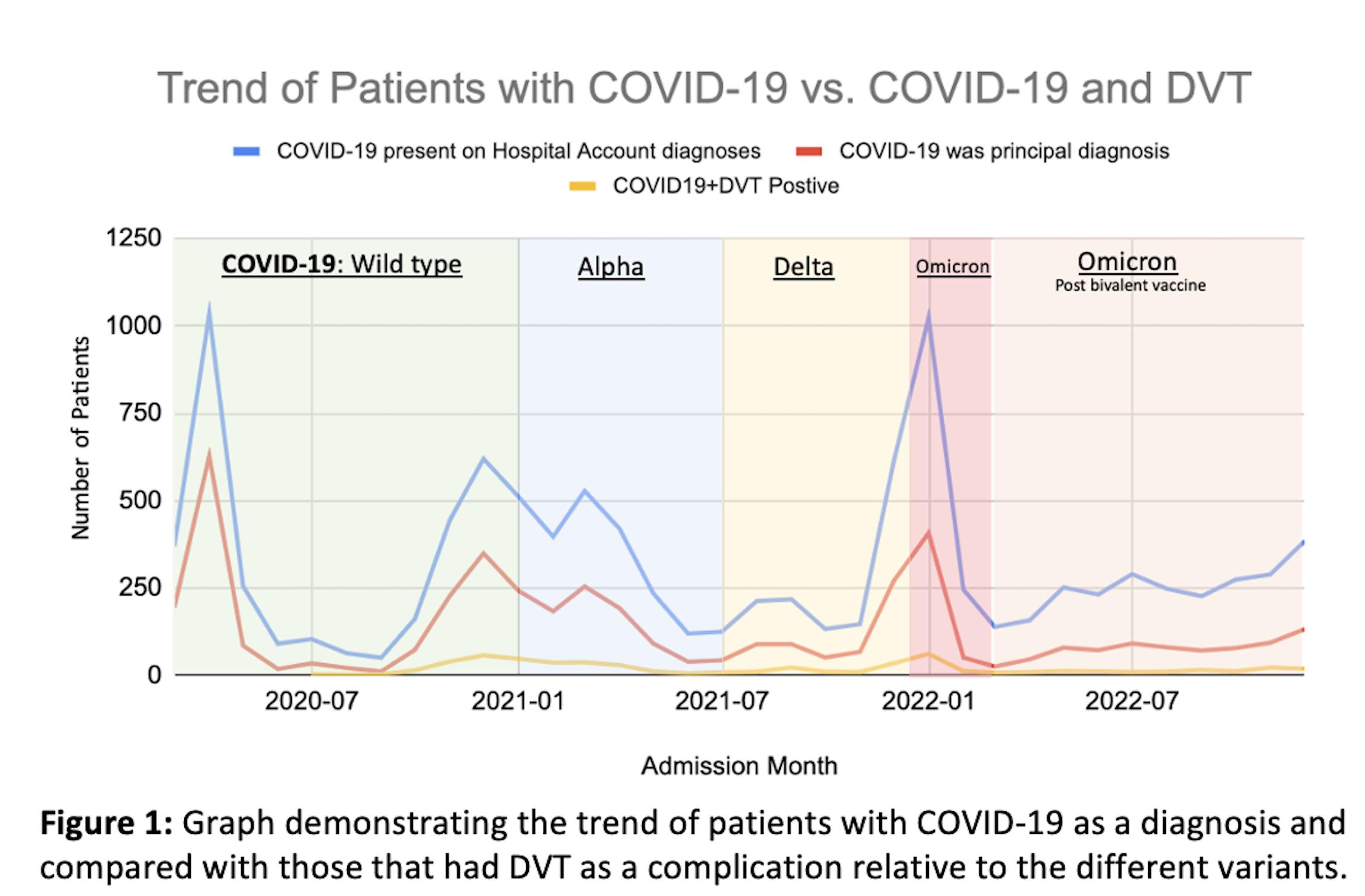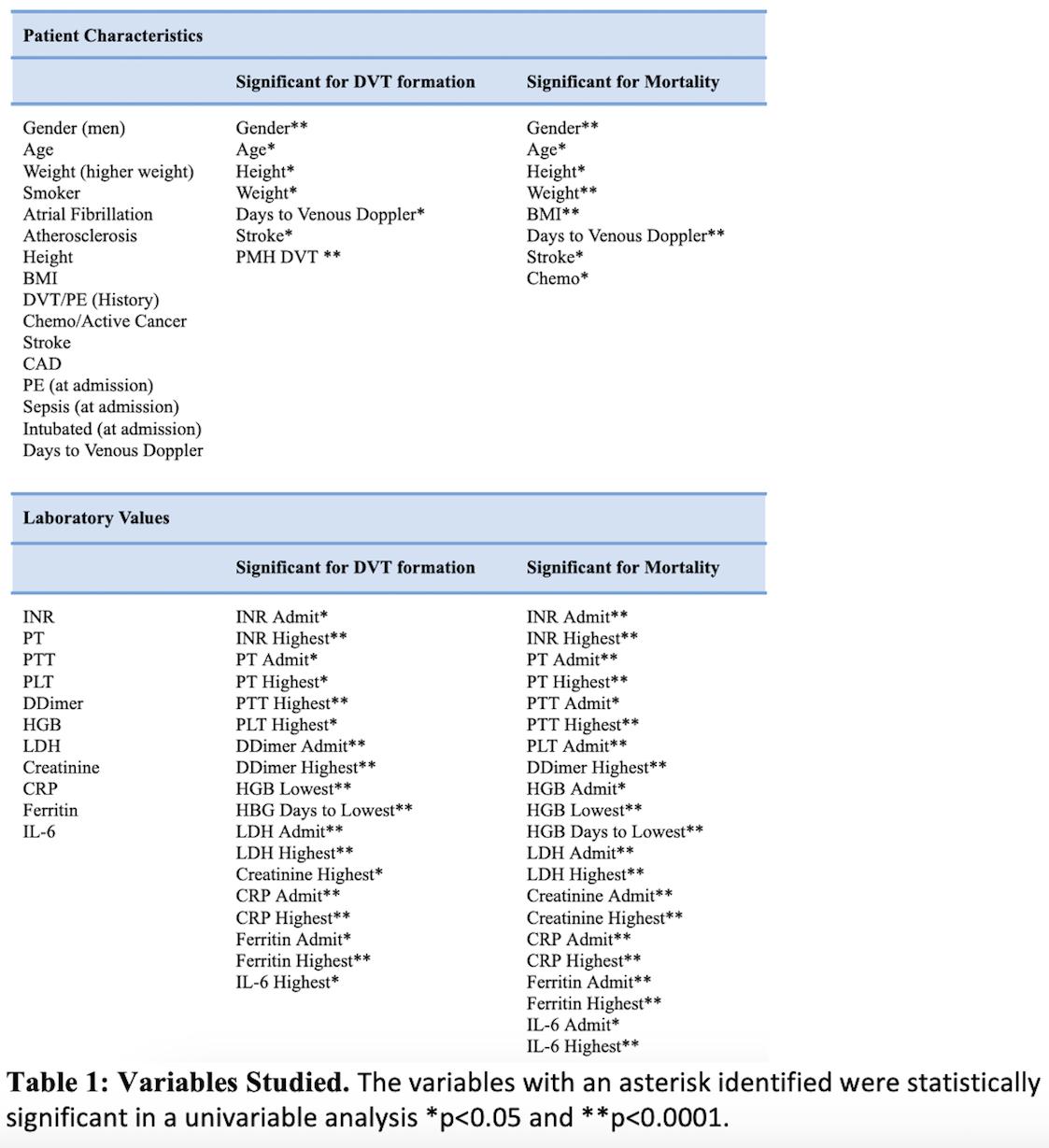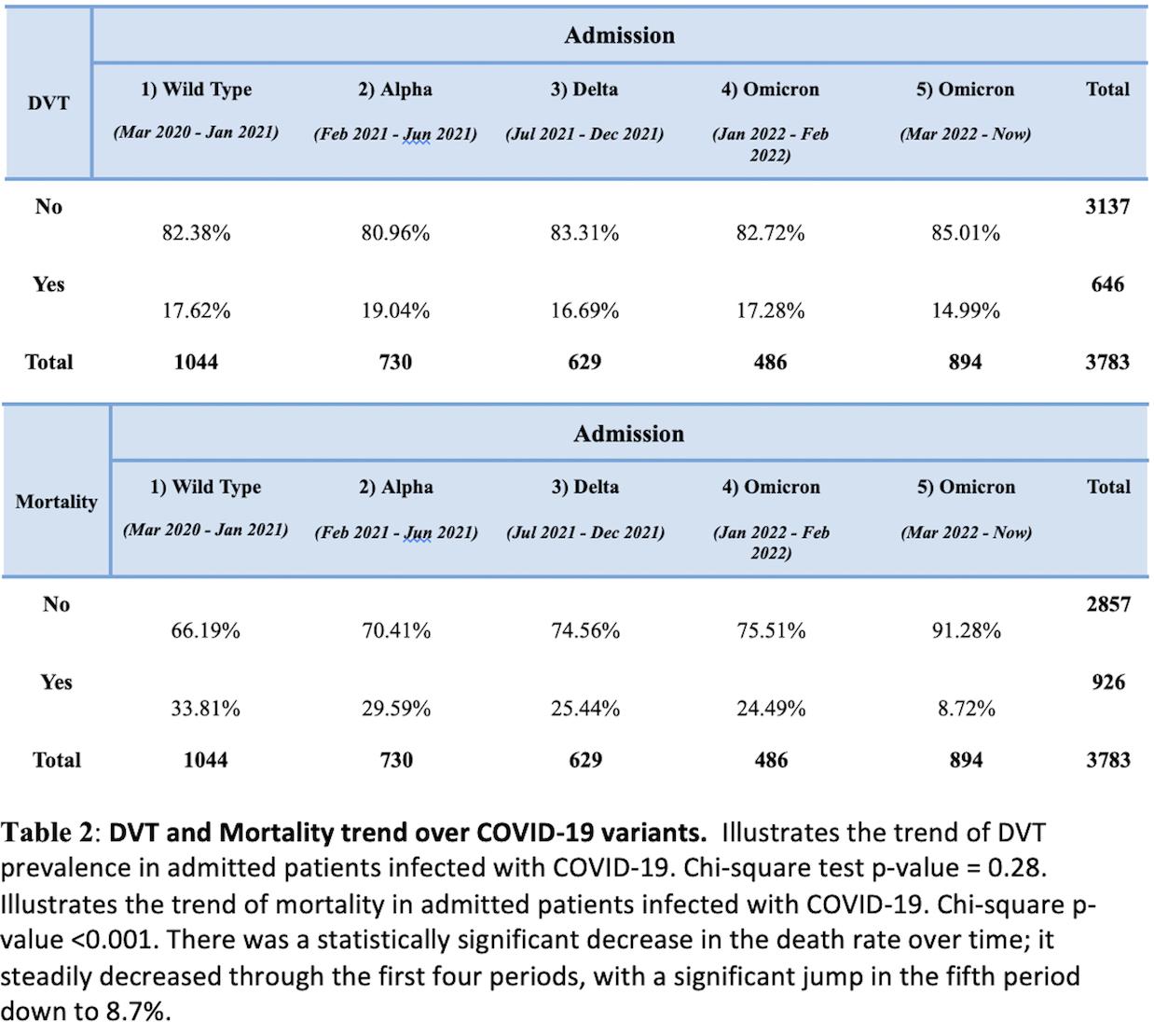Objective-To identify risk factors in patient populations that may predict the development of venous thromboembolism (VTE) in COVID-19 patients infected with different viral strains. Methods-A retrospective cohort study was conducted of 3162 COVID-19 positive patient encounters who were admitted to a tertiary care institution from March 2020 to December 2022 and underwent a duplex venous ultrasound (DUS) due to clinical suspicion for DVT. The groups were stratified into DVT positive and DVT negative cohorts based on DUS results and then further analyzed based on the known risk factors to increase DVT formations and the most dominant COVID-19 variant (Figure 1). Variables were studied and analyzed using univariate and multivariate regression (Table 1). Results-Looking at multivariant analysis, patients that were more likely to have a DVT got a DUS later in their admission (8.4 days vs 5.9 days p<0.0001) and those who had a history of DVT (p<0.0001). Best independent predictors of mortality among hospitalized COVID-19 patients included being older (66.78 vs 64.42 years old, p<.0001) and having a higher BMI (p<0.0001). Overall, the likelihood of DVT formation is the same regardless of the variant of COVID-19, but the risk of mortality has decreased among patients infected with COVID-19 (Table 2). Conclusions-This preliminary data collection highlighted some risk factors associated with DVT progression. Given the retrospective nature of the study it is hard to know certainly the cause of the decreased mortality seen in the more current variants. We will also consider collecting data on vaccination status and the use of anticoagulants in the treatment of these patients to find any correlation. This can aid in identifying which comorbidities are associated with poorer outcomes, understand the evolution of the virus, and predict the high-risk patients.
Keywords: deep vein thrombosis, venous thromboembolism, COVID-19 variants, duplex venous ultrasound
OR BAD GRAPHIC SPECIFICATION (1E4D3377-A8CB-4DDF-97DF-B2962B8B53C1) 1084
OR BAD GRAPHIC SPECIFICATION (210696DF-D167-45C8-B392-D710D683F229) 1084 

